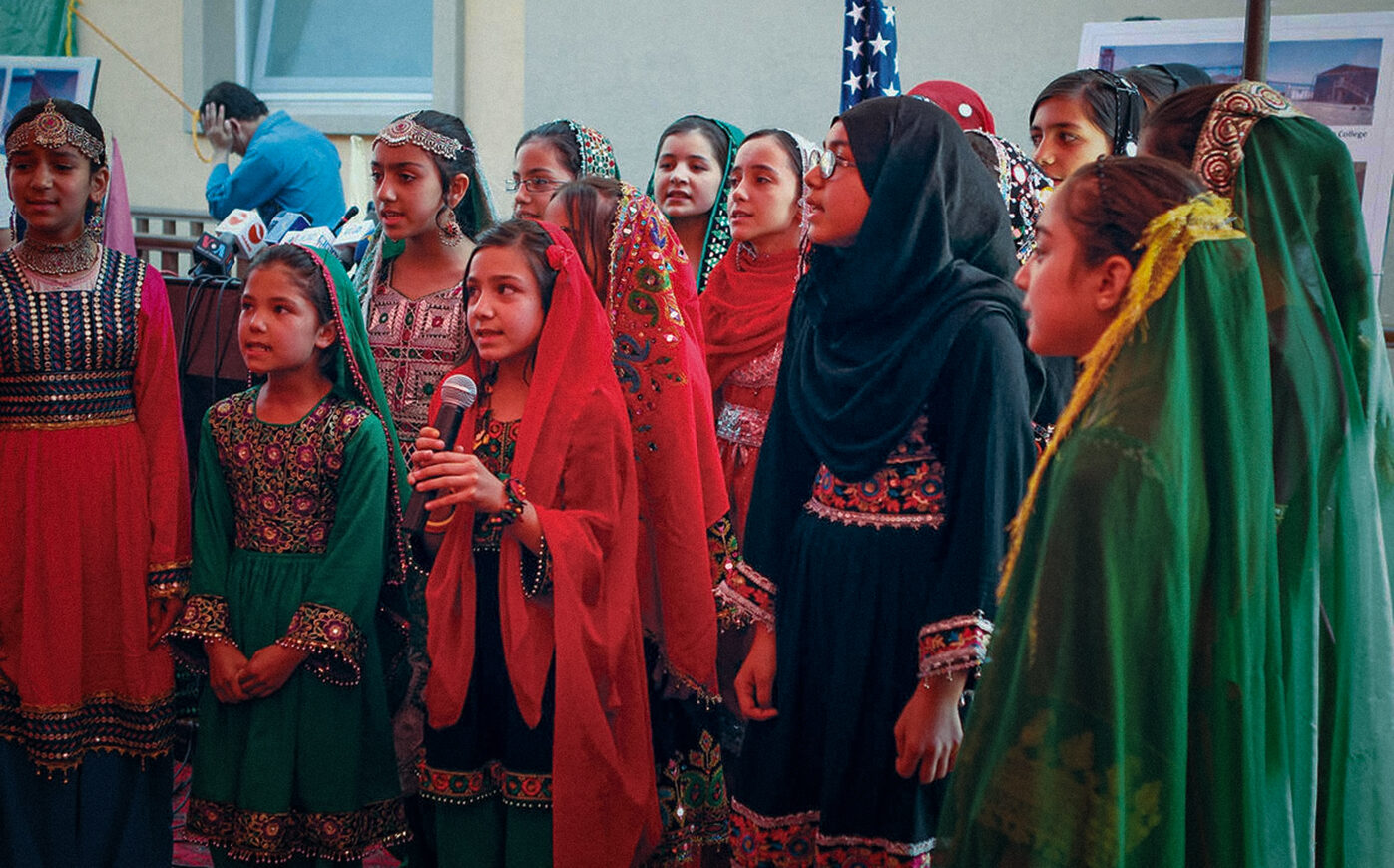Photo of students at the dedication ceremony of a new girls’ high school in Kabul, Afghanistan, by Mission Director of USAID Afghanistan.
Foreign Aid Cuts Leave Afghan Refugees Adrift
Two State Department programs that helped Afghans refugees were halted when the new administration froze foreign aid. Now they are terminated.
The past few weeks have been full of uncertainty for refugees around the world who had been approved for relocation to the United States. On Jan. 20, President Trump signed an executive order that indefinitely suspended the U.S. refugee admissions program and he ordered what he said would be a 90-day program-by-program review of foreign assistance programs to see which should continue. This left refugees preparing to fly to the United States without a plan and newly arrived refugees without the funds and services promised them as they work to build new lives.
On Feb. 26, Peter Marocco, the State Department official who took over the remains of USAID, said in court filings, that the Trump administration had completed its review and was terminating more than 10,000 USAID and State Department contracts and grants, impacting critical programs that provide life-saving support to some of the world’s most vulnerable populations. These cuts, amounting to only one percent of the U.S. national budget, threaten food security, healthcare, and essential services to millions of impoverished and vulnerable people around the world, exacerbating suffering in regions already facing extreme hardship.
The cuts impact the Reception and Placement (R&P) program at the U.S. Department of State, which equips resettlement agencies with resources to provide resettlement support to newly arriving refugees for their first several months in the United States. This includes Afghans arriving on Special Immigrant Visas, who worked for the U.S. military during the war against the Taliban in Afghanistan from 2001 to 2021.
Two State Department programs for Afghans with Special Immigrant Visas that were stopped during the foreign aid freeze now have been terminated, leaving those who remain in Afghanistan at risk of retaliation by the Taliban and those who have recently resettled in the United States without the support they need.
Formed by Congress after the chaotic withdrawal of U.S.-led forces from Afghanistan in 2021, the Coordinator for Afghan Relocation Efforts (CARE) oversees efforts across U.S. government agencies to evacuate at-risk Afghans, process them in third countries and resettle them in the United States under a program called “Enduring Welcome.” AfghanEvac, a NGO formed during the U.S. military withdrawal from Afghanistan in 2021 to assist the coordination of government and non-profit programs, has worked with CARE since its inception, providing feedback and coordination as part of an unprecedented public-private partnership.
“This is a national disgrace, a betrayal of our Afghan allies, of the veterans who fought for them and of America’s word,” said Shawn VanDiver, president of AfghanEvac. The Trump administration has cut these programs despite a legally binding requirement that CARE continue its work through 2027.
According to refugee advocates working at refugee resettlement agencies in Washington, DC, the closure of CARE strands more than 250,000 people in Afghanistan, including 128,000 who worked for the United States and have applied for Special Immigrant Visas along with their families, as well as several thousand Afghans who were fully vetted and are waiting in other countries.
The Afghans potentially affected also include family members of 200 active-duty Afghan American U.S. service members, unaccompanied minors waiting to be reunited with their parents and relatives of Afghans already settled in the United States.
“Afghan allies, veterans, and advocates deserve clarity and commitment,” said VanDiver. “Right now, they have neither. We urge U.S. leadership to honor the law and the promises made to those who stood beside us.”
Iqbal Ahmad, an Afghan peace studies student who completed a fellowship at the Maryknoll Office for Global Concerns in 2024 said, “Afghanistan has devolved into one of the most repressive regimes globally, characterized by a stark regression in human rights, particularly for women. The Taliban’s complete ban on secondary education for girls stands as a chilling hallmark of their oppressive rule, effectively restraining the hopes and futures of an entire generation.”
The violence of twenty years of war, the repression by the Taliban, and now the cuts to U.S. foreign aid programs attempt to break the ties that bind humanity but as another advocacy group, Women for Afghan Women, said in a statement on Feb. 27, “In our 24 years of service, we have learned to adapt and readapt to crisis after crisis. Your support has allowed us to meet these challenges both in the United States and Afghanistan.”
Faith in action
Write and call Congress and the State Department to ask for a resumption of foreign aid. https://mogc.info/USAID-ACT

